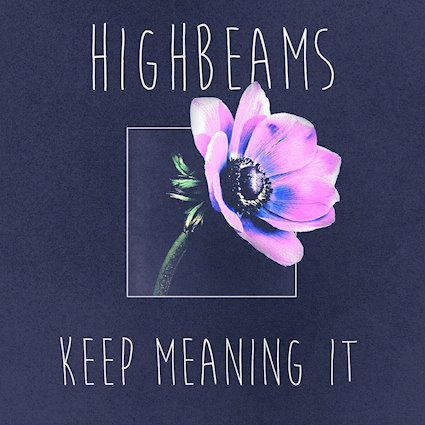 The first time I went through this very recent (as in it hit the streets this past Monday) release by the Georgia-based band of brothers called Highbeams, I sort of put it in the pile of, “okay, but meh…”
The first time I went through this very recent (as in it hit the streets this past Monday) release by the Georgia-based band of brothers called Highbeams, I sort of put it in the pile of, “okay, but meh…”
Luckily for them I listened to it a second time and there I found a little more of the magic that this band can put out when they place their mind to it. Sure, there are a couple of songs that seem on the fussy side, like Mess We Made or I Know A Place, but on the whole this isn’t a bad album if you’re into their sort of sound.
Highbeams is like a lot of other independent bands: they perch on the ledge that exists between folk, rock, country, Americana, and adult contemporary. Employing a heaping helping of harmony, Highbeams has developed a bit of a following in their native area and as I write they are expanding their reach, somewhere on the road between a show they played last night in Cleveland and tonight’s stop in Buffalo – it’s a mini-tour through the middle of the country to promote the new release. Someday is the lead single, which explains the video below.
The songs seem to be very honest, with some of them recorded in such a way that it sounds like they are right in your living room: for example, I could just picture them sitting on my couch doing the song Talking To Myself. Once upon a time I read that Fleetwood Mac and Steely Dan used to spend a jillion dollars to get their songs just so in the studio, but these guys probably spent whatever amount it took for the electricity to run the home studio and it’s just as effective.
If I were to have one main complaint about this compilation, I would say they need to stretch their musical wings just a bit. There are 12 songs on “Keep Meaning It,” but none of them are really distinctive – yes, they have the sound they want down, but maybe they need to toss in something that’s more bluegrass-influenced or maybe just a ballad. Perhaps Guilty and Window are the best attempts at breaking the mold, Guilty being the closest to a rock song and Window featuring a heavy dose of female lead, but they can’t quite escape the room.
So I moved a little bit off “meh…” but since it’s the time of year I begin to think about which albums I’ve listened to that would make my annual top 5 list, I can’t say this one is a real contender. You may wish to disagree, and to that end I encourage you to check out the Highbeams website and listen for yourself.


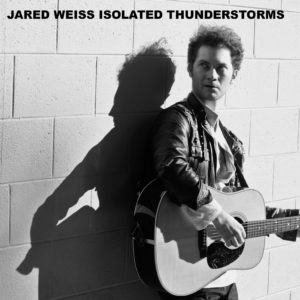 As the last in a long run of records I was asked to review, I hesitated to write about such a CD given the summer we’ve had. But this is an isolated thunderstorm you really won’t mind too much because it’s actually rather refreshing.
As the last in a long run of records I was asked to review, I hesitated to write about such a CD given the summer we’ve had. But this is an isolated thunderstorm you really won’t mind too much because it’s actually rather refreshing.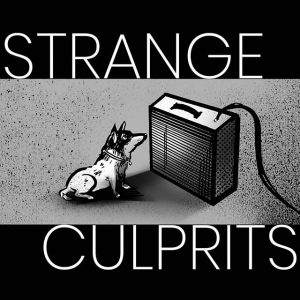 If there were an award for most appropriate group name, this one may be the winner. Indeed, there are some strange songs on this debut album from the Bay-based group Strange Culprits. (That’s San Francisco’s bay, not the Chesapeake.)
If there were an award for most appropriate group name, this one may be the winner. Indeed, there are some strange songs on this debut album from the Bay-based group Strange Culprits. (That’s San Francisco’s bay, not the Chesapeake.) This relatively new release from Canadian-born, now New York-based Kate Fenner is aptly named if you recall as I do the old format called “middle of the road.” While she describes it as folk, it’s not so in the traditional sense, but more in the getting
This relatively new release from Canadian-born, now New York-based Kate Fenner is aptly named if you recall as I do the old format called “middle of the road.” While she describes it as folk, it’s not so in the traditional sense, but more in the getting 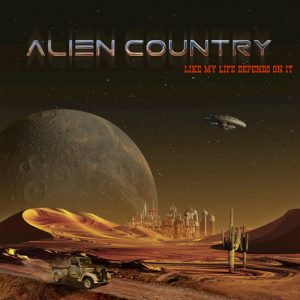 Buried well back in the track listing for this release by country-tilting rocker Alien Country is a song called How It Could Have Been, and it’s the perfect metaphor for this messy, fussy album.
Buried well back in the track listing for this release by country-tilting rocker Alien Country is a song called How It Could Have Been, and it’s the perfect metaphor for this messy, fussy album. It’s only five songs, but as a market teaser Maxwell James has himself a pretty good start. Putting a modern twist on traditional country straight from the get-go with The More You Say, The Less I Know, he takes a trip into the shared roots of rock, country, and blues.
It’s only five songs, but as a market teaser Maxwell James has himself a pretty good start. Putting a modern twist on traditional country straight from the get-go with The More You Say, The Less I Know, he takes a trip into the shared roots of rock, country, and blues.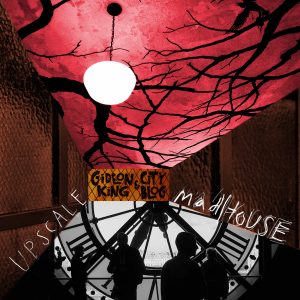 Another followup from a monoblogue music
Another followup from a monoblogue music  I don’t often tread into the world of jazz for these reviews because I’m not nearly as familiar with the genre – simply put, it’s not my favorite. I don’t have a preset on any local station that happens to play music from that corner of the musical world.
I don’t often tread into the world of jazz for these reviews because I’m not nearly as familiar with the genre – simply put, it’s not my favorite. I don’t have a preset on any local station that happens to play music from that corner of the musical world. Everyone has a musical sweet spot, and great albums will gravitate toward it.
Everyone has a musical sweet spot, and great albums will gravitate toward it. Years ago, a now-failing retailer tried to change its manly image honed by years of being best known for selling tools and appliances by billing “the softer side of Sears.” Ghostly Beard is one of the few artists who purposely bills himself as “soft rock” – a contradiction in terms, but perhaps appropriate in this case.
Years ago, a now-failing retailer tried to change its manly image honed by years of being best known for selling tools and appliances by billing “the softer side of Sears.” Ghostly Beard is one of the few artists who purposely bills himself as “soft rock” – a contradiction in terms, but perhaps appropriate in this case. If there’s one thing to say about Paul Maged in a non-musical sense, it would be his shrewd marketing ability. Why have one post here about his latest album when he can release it as a trilogy of EPs and make it three, spaced over a period of months?
If there’s one thing to say about Paul Maged in a non-musical sense, it would be his shrewd marketing ability. Why have one post here about his latest album when he can release it as a trilogy of EPs and make it three, spaced over a period of months?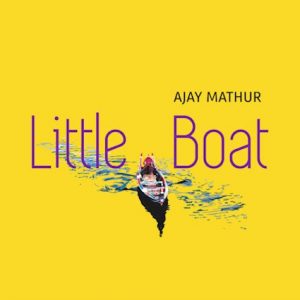 In his followup to an album
In his followup to an album